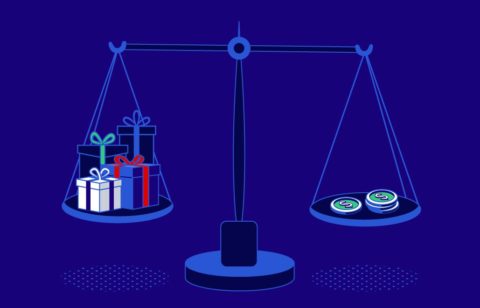There are many reasons why you need to save money. Everyone needs to learn how to save for retirement. If you have plans to buy a home, that is something that you should save up for – at least the down payment should be paid in cash. A new car should ideally be bought in cash since it is something that depreciates in value. And that college education for your kid – you should save up for it. Or at least, you should save to pay for a portion of it. That way, you can help keep your child from the burden of student loans.
These are only a few of the reasons why you should save money. The least that you can do is to try to prepare for any emergency that may crop up in the future. That way, you can keep yourself out of debt. You can reverse the trend of working hard to pay for past expenses – which is what debt actually brings to your life. Instead, you can start working to pay for the expenses that you want to make in the future – which is what saving is all about.
In most cases, learning how to save means changing a lot of habits that we were used to practicing. That is harder than you think. It is like battling with your inner self. This is actually where you need to tap into external factors that can help you turn a new leaf.
This is where your friends can help you save money.
How your friends affect your spending and saving habits
There is this saying that goes “tell me who your friends are and I will tell you who you are.” This is because we naturally gravitate towards people who have the same interests as we do. And even if you end up working with a group of people that are different from you, chances are they can influence you or they will adapt some of your habits.
According to a study done by the American Institute of CPAs (in cooperation with the Ad Council), Millennials are actually greatly influenced by their friends when it comes to financial habits. The press release holding the data published on AICPA.org revealed the following details:
-
78% of Millennials (25 to 34 years old) look into the financial habits of their friends to find out their own.
-
66% of Millennials keep pace with their friends when it comes to living arrangements.
-
64% tries to keep up with the possessions of their peers.
-
⅔ of Millennials are pressured to eat and possess the same gadgets that their friends own.
What is alarming for this group is the fact that some of them had to use credit cards to make ends meet. Their excessive spending have forced them to rely on their credit cards. All because they wanted to keep up with the lifestyle of their friends.
If you want to practice smart spending habits, you may want to take a look at the habits of your friends. Although the decision to spend is entirely your own, there are instances when you are merely being influenced by their own habits. This can be a problem when you are trying to save money. Being friends with savers is a good thing. But if you are friends with spenders, what can you do?
Well we are not really asking you to give up your friends. But why not turn the tables around? If they can influence you, then maybe you are influence them too. Maybe you should initiate saving activities that will make all of you more conscious about your spending.
7 ways that your friendship can help you save more money
There are ways for you to be a smart spender by shopping and saving at the same time. But you have to learn how you can do it with your friends. That way, you can all start making smarter spending choices together. Simply gather everyone around and tell them of your financial situation and how you really want to save money for a financial goal. If they are your true friends, they will support you and help you accomplish your goal.
But beyond that, here are 7 ways that you can use your friends to increase your saving capabilities.
-
Avail of group rates. If you are watching a movie together or you want to go on a vacation with your friends, make sure that you take advantage of the group rate. In some cases, when you do things together, you can get a discount. This is true for hotel rates, airlines and other tickets.
-
Do your grocery shopping together. When you buy things in bulk, you oftentimes save a lot of money compared to buying products per piece. Schedule to go on weekly groceries together. You do not only save on your groceries, you can also save on gas if you ride the same car to the store.
-
Schedule work-out sessions together. To save on gym memberships, you can try to schedule your exercise sessions with your friends. You can bike, hike or jog through the park together. Another idea is to buy equipments together. This is will work if you live near each other. When you want to workout, simply borrow the equipment. You can set up schedules and make sure that the last person who used the equipment will deliver it to the next person on the list. This can a bit tedious but you can really save a lot this way and still exercise.
-
Set up potlucks. Holidays can be expensive because of the feast that you have to prepare. It can be tiring because you have to prepare more than one dish. Well how about celebrating the holiday together and potluck with friends instead? You can each prepare one dish. Since you are bulk buying the ingredients, your cost will come out cheaper. And not only that, you get to eat different dishes without tiring yourself out too much.
-
Take advantage of your friend’s skill. If you have a friend who loves to cook. Why not ask for their help instead of hiring a caterer for a small family event. Or if a friend knows how to fix cars or do some stuff around the house, enlist their help. Make sure you also do them favors so they will not feel like you are using them. Offer to watch over their kids or something similar to return the favor.
-
Swap possessions. Why buy stuff when you can swap instead? If you have movies or books that you can offer your friends, why not swap for their possessions that you haven’t watched or read. You can do the same for clothes. That way, you can expand your wardrobe without having to spend on new clothes.
-
Turn savings into a competition. There is nothing like a competition to help motivate you to reach a goal. You can actually save money if you do it together with your friends. You can turn it into a competition so that you can all watch out for each. That is a fun way to reach saving goals.
If you let your friends in on your saving targets, they might be encouraged to join you. If anything, they can help you reach your goal by setting up fun frugal activities that will allow you to continue hanging out with them, while staying true to your budget.
Study shows that friends are not just beneficial for saving your money
Apart from the 7 suggestions that we have given you, there are more benefits to having friends. Did you know that the right set of friends can also help you save on health care costs? At least, this is true if your friends are trying to live a healthier lifestyle.
According to an article published in WebMD.com, good friends are actually very good for you. They have cited a couple of studies that prove this point. One of the most prominent is from the Centre for Ageing Studies (Flinders University in Australia). Based on their study, people with more friends outlived those who have few friends by 22%. The findings revealed that unhealthy behaviors can be discouraged by healthy friends and the companionship can help prevent depression and improve self-esteem. When you are healthy, you get to spend less on health care costs.
This can be a good thing in a country that has high costs of medical care. Based on the data found on AETNA.com, experts have computed that the health care spending in the country can rise to $4.8 trillion by 2021. In 2010 alone, the spending is already at $2.6 trillion. In 2012, American families spent more than $20,000 in health care.
You can actually prevent this if you surround yourself with friends that will encourage you to live a healthy lifestyle. That is another way for you to save money on possible health treatments.







